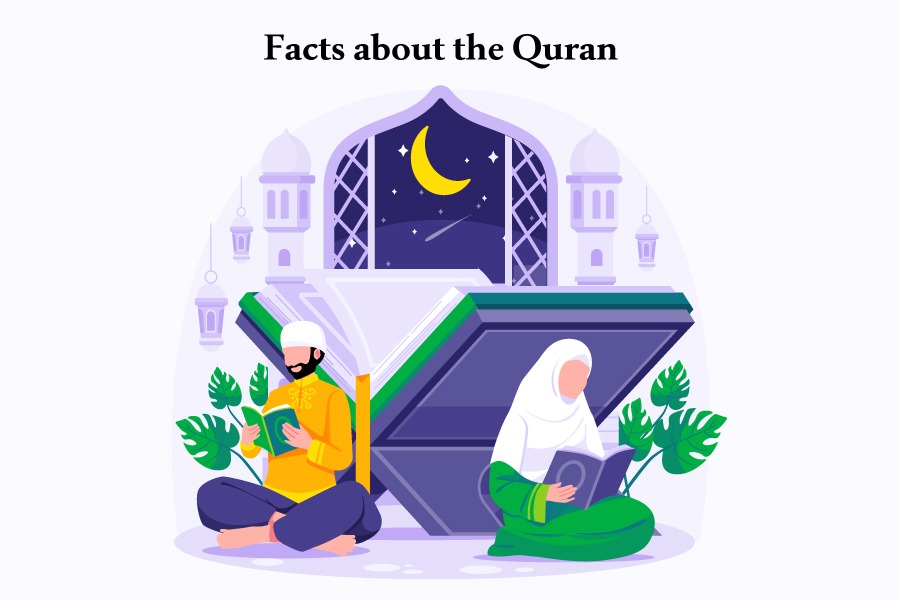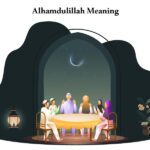The Quran also spelled as Koran, is the central religious text of Islam. It is the literal word of God as revealed to the Prophet Muhammad by the archangel Gabriel. With over 1.8 billion Muslims around the world, the Quran holds immense significance as a guide to faith, morality, and practical living. In this article, here are a few facts about the Quran and explore various Quran facts surrounding this sacred scripture.
Understanding the Quran
The Quran, written in Arabic, is divided into chapters called “Surahs,” which are further divided into verses called “Ayahs.” It covers a wide range of topics, including theology, guidance for personal conduct, social issues, and legal matters. Muslims believe that the Quran is an eternal and unchanged scripture, offering divine guidance and wisdom for all aspects of life.
Facts About the Quran
Here are some intriguing facts about the Quran that shed light on its historical, linguistic, and cultural significance:
-
Divine Revelation
One of the facts about the Quran is the divine revelation. Muslims believe that the Quran is the literal word of God, revealed to the Prophet Muhammad through the angel Gabriel. It is regarded as the final and most comprehensive revelation from God to humanity.
-
The Quran’s Literary Excellence
The Quran is renowned for its unparalleled literary excellence. Its poetic verses captivate readers with their rhythmic flow, beautiful imagery, and profound meaning. The Arabic language of the Quran is the pinnacle of linguistic beauty, setting the standard for classical Arabic literature.
-
The Preservation of the Quran
One remarkable facts about the Quran is its impeccable preservation throughout history. The text has remained unchanged since its revelation over 1400 years ago. Muslims attribute this preservation to the meticulous efforts of early Islamic scholars who memorized the entire Quran and transmitted it orally from one generation to the next. Today, millions of Muslims have memorized the entire Quran, ensuring its continued preservation.
-
The Miraculous Nature of the Quran
Among the facts about the Quran, Muslims believe that the Quran is a miraculous text, both in its content and its form. It contains scientific and historical information that was not known at the time of its revelation, serving as a testament to its divine origin. Additionally, the Quran’s linguistic intricacies and stylistic features continue to astound scholars and linguists to this day.
-
The Length of the Quran
The Quran consists of 114 Surahs (chapters) with a total of approximately 6,236 verses. The chapters vary in length, with the longest chapter, Al-Baqarah, containing 286 verses and the shortest chapter, Al-Kawthar, consisting of only three verses. Despite its length, each verse is a profound and self-contained unit of wisdom and guidance the best among the facts about the Quran.
-
How many pages are in the Quran
The Quran, being a religious text, is not traditionally divided into pages like a book. Instead, it is divided into chapters called “Surahs” and further into verses called “Ayahs.” The number of pages in a printed Quran can vary depending on the font size, formatting, and the edition being used. Typically, a standard-sized printed Quran contains approximately 604 pages.
-
The Recitation of the Quran
Recitation of the Quran, known as “Tilawah,” holds great significance in Islamic practice. Muslims recite the Quran in their daily prayers, aiming to achieve a deep spiritual connection with God. The melodious recitation of the Quran inspire countless individuals and has been recognized as an art form in its own right.
-
The Universal Message of the Quran
The facts about the Quran emphasizes the universality of its message. It addresses humanity as a whole, encompassing people from all walks of life, cultures, and backgrounds. The Quran promotes compassion, justice, and respect for fellow human beings, regardless of their beliefs or ethnicity.
-
Scientific References:
The most amazing fact among the facts about the Quran is that it is scientifically approved that the Quran contains verses that discuss natural phenomena and scientific concepts. Many Muslims believe that these verses reflect a knowledge of science that was not known at the time of its revelation, serving as evidence of its divine origin.
Frequently Asked Questions (FAQs)
- Is the Quran available in languages other than Arabic?
Yes, translations of the Quran are available in numerous languages, allowing non-Arabic speakers to access its teachings. However, it is important to note that translations may not capture the full linguistic beauty and nuances of the original Arabic text.
- How is the Quran different from other religious texts?
The Quran is distinct in its claim of being the direct and literal word of God. It is a complete guide for Muslims, covering all aspects of life. Unlike other religious texts, the Quran places a strong emphasis on social justice, moral conduct, and personal accountability.
- Can anyone interpret the Quran?
Interpreting the Quran requires a deep understanding of its language, context, and Islamic jurisprudence. Islamic scholars with extensive knowledge and expertise undertake the task of interpreting the Quran to ensure accuracy and prevent misinterpretation.
- Are there different interpretations of the Quran?
Yes, there are different interpretations of certain verses and passages of the Quran among Islamic scholars. These interpretations arise due to variations in linguistic understanding, cultural contexts, and scholarly opinions. However, the core message and principles of the Quran remain consistent.
- How can one study the Quran effectively?
Studying the Quran effectively involves a multifaceted approach. This includes reading and reflecting on its verses, seeking guidance from qualified scholars, studying the Arabic language, and exploring the rich scholarly traditions and commentaries on the Quran.
- Is the Quran only for Muslims?
While the Quran is the primary religious scripture for Muslims, its teachings and wisdom are not exclusive to Muslims alone. People from various backgrounds can explore the Quran’s universal values and find inspiration and guidance in its message.
Conclusion on Facts about the Quran
The Quran stands as a testament to the spiritual, literary, and cultural heritage of Islam. Its timeless wisdom and guidance continue to resonate with millions around the world. Through remarkable facts about the Quran is the preservation, linguistic beauty, and universal message, the Quran remains a source of inspiration and guidance for those seeking a deeper understanding of faith, morality, and the human experience.

















